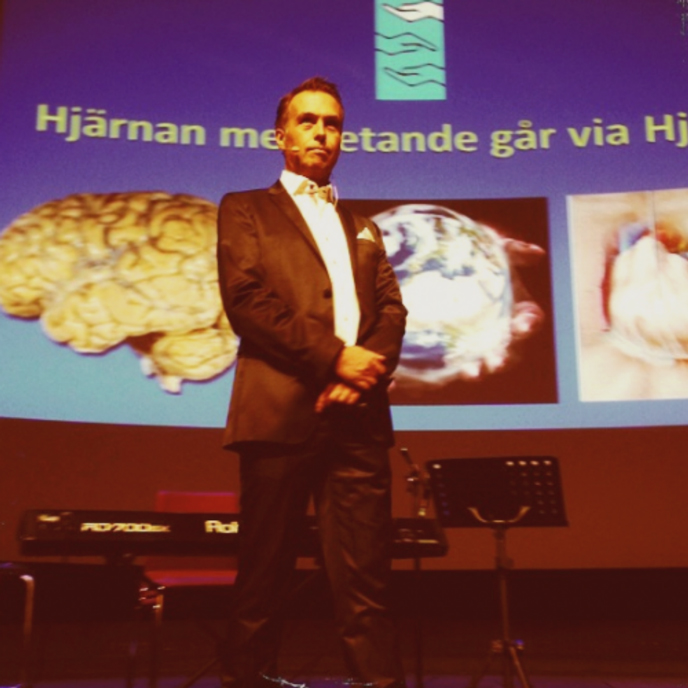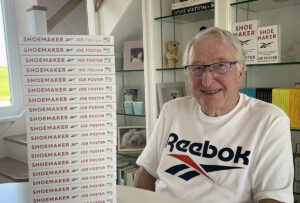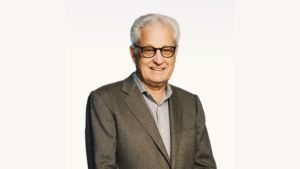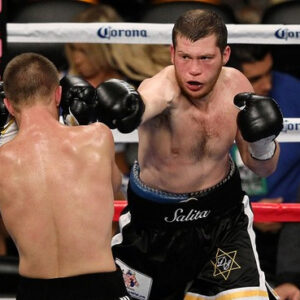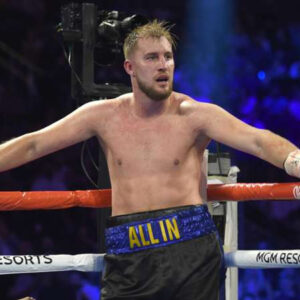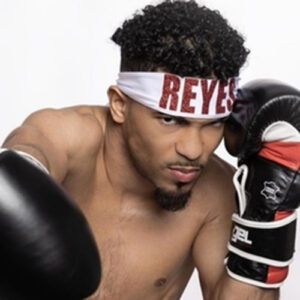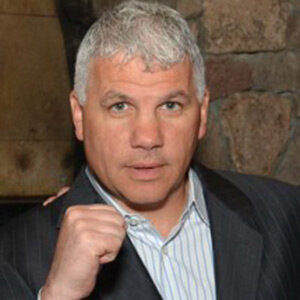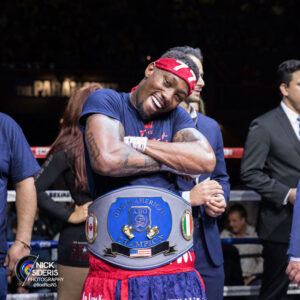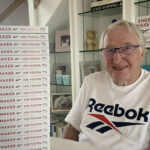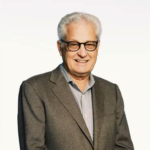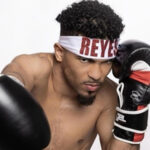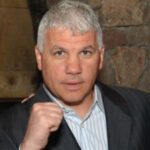View this episode's trailer
Episode Description
Dr. Christina Rahm is joined by founder and CEO of Next Generation Research Center (NGRC), Jorgen Tranberg, as he shares his experience in life science, energy, education and with the environment. An inspirational and motivational public speaker who aims to inspire you to live your life fully in compassion, Jorgen Tranberg builds communities with values of compassion while supporting research. Connect with Jorgen on LinkedIN.
Host
Dr. Christina Rahm
Guest
Jorgen Tranberg
TRANSCRIPT
Dr. Rahm [00:00:00] I want to take your astrology course.
Dr. Jabeen [00:00:02] You know I’ve been teaching on the marketing course today, I…
Dr. Rahm [00:00:05] Have you?
Dr. Jabeen [00:00:05] Yeah, in my million-dollar professionals club today, I had a full house and I was teaching them that you can still see. Yeah, yeah.
Jorgen [00:00:15] Yeah. See, I was direct… [inaudible]
Dr. Jabeen [00:00:20] Jorgen move your head a bit. No maybe not. Take your glasses off Jorgen. Can you not…
Jorgen [00:00:27] Yeah I just pointed in another direction, but it’s not really like helping.
Dr. Jabeen [00:00:33] You know what? Take them off.
Jorgen [00:00:34] Uh no then I cannot see, you know, then I become really blind. So, I’m going to because it’s always nice to have ah
Dr. Jabeen [00:00:44] I’ve got glasses, but people don’t know that I have sometimes.
Jorgen [00:00:47] OK, I have to try.
Dr. Rahm [00:00:48] That’s true, Ghaz, because you can hardly.
Dr. Jabeen [00:00:50] I know.
Dr. Rahm [00:00:51] It looks like this. Yeah.
Dr. Jabeen [00:00:54] Mine are rimless that I had to still keep my glam look, you know?
Dr. Rahm [00:01:04] That’s right, Ghaz, that’s the most important thing. OK, I’m going to be serious, but we can have fun. We can have fun.
Dr. Rahm [00:01:23] Hi, everyone, welcome to this edition of Scientifically Beautiful on the Life is Tough but You can be Tougher network. And I’m so excited today to introduce two of my good friends that are amazing, amazing people that have a vast range of experience, from health care to wellness to business. And have written books and have traveled all over the world to start companies in the hopes to empower people and to make people’s lives better. And so, we have a lot to talk about today. I want to say hi to Jorgen Tranberg. Am I saying that right, Jorgen?
Jorgen [00:01:59] Yeah, you actually pronounce it perfectly. So, thank you.
Dr. Rahm [00:02:03] And Ghazala Jabeen and we’ve had her on the show before, and she’s an amazing person. But this duo together started a company called NGRC, which is a next generation research center out of Cyprus, and I’m going to let them talk about it. But they’ve done amazing things together again in the areas of business, science, health care and a lot of different areas. And I think it’s very important because I’ve had the opportunity to work with these two individuals as they launch different programs to really help others, not just in Cyprus, but around the world. So, I’m going to give them the opportunity to talk about it, but before we start…
Ad [00:02:46] At Root, we’re trying to clean out the body, so we’re trying to take the waste out and then we’re also trying to supplement because once you clean the cell and clean the body, you’ve got to put the right things into the body. We are a company dedicated to non-GMO vegan and clean products, organic, and I think this is very important when we’re developing products. One of my favorite products is Root Clean Slate, and so I want you guys to think about when you write on a whiteboard and you write on it all day. If you don’t wipe that whiteboard off, then it’s dirty. So, with the Zeolite product, we’re able to really clean the slate, get rid of things and start over. So, we have a product called Zero-In, this particular product is able to really help people focus by affecting the neurotransmitters of the brain. It’s also able to help people with just daily life and energy levels. We used a lot of ingredients in this particular formula. A lot of natural ingredients, amino acids that the body really needs. So, if you look at our first round of products and then what we’re coming out with, you really are going to have something that you use on a daily basis. Just like pharmaceutical and biotech, we’re a nutraceutical company because our goal is not to end today. Our goal is to have a bright future where we help people daily. Your body needs a foundation and it needs a strong foundation, and that’s what we’re giving people.
Jorgen [00:04:12] The most important thing is, yes, getting important if he has the right kind of people around you, it’s always like a collaboration it’s always like a teamwork. I don’t see it like I’m the most important. What we all are doing has such important piece and that kind of like experience, the skills, and when you are starting really to collaborate, you know, everyone. It has such important role, which is basically equal with each other. But yet what is right is that I started up everything what we call The Cyprus Project that is correct because I know that that’s just a little bit of the main topic, what we’re going to talk about it. So yes, in that regards I can accept that, that I started up and this was actually OK. So, let’s give it a little bit background here. I am a Swedish man. I’m fifty-six years old, actually I’m turning now very very soon fifty seven…
Dr. Rahm [00:05:19] Ghaz made an impression. Okay, but that’s not that old Jorgen. But go ahead. That’s what I was going to say.
Jorgen [00:05:25] Thank you. I mean, I still yeah, I still feel somewhat young. I had a little accident, injured my ribs and then I felt really like fifty-six plus plus plus for a few days now. But I feel much better. But normally, yes, so I was in a very, very young age. I’m going to make this story very short, and I had a back problem like a really severe one, chronic pain and already in the age of 13. Long story short, the normal path of medicine could not help me and my parents took me to a chiropractor. This guy helped me heal then become like a mentor. I decided to go into chiropractic school. I did that. I was very, very young. I saw my first patient in the age of 20 years old, became a chiropractor. Always being so interesting is like, what did this chiropractor actually do? He was also an acupuncturist trained also, like in China. So, I felt that these are supposed to be the experts. Like all the medical doctor orthopedic [inaudible] they did a fantastic job, so it was like nothing wrong with them. But I always in very very young age wondered what actually did he do? Long story short, I became a chiropractor. I was an acupuncturist from like traditional Chinese medicine in the age of 20 21 there, and I had basically been devoting my whole life to understand the body’s ability to heal by itself. Then I actually moved over to the States. I started Naturopathic School of Medicine in Stockholm in Sweden, moved to the States, finished up school both in Stockholm and also enter like naturopathic school in the States. I lived over in California, San Francisco Bay Area for twelve years, moved back down to Sweden, which was the year 2000. OK, that was the first background. Five years ago, it’s actually now a little bit more than five years ago. I have written three books. My last book was called Compassion because I’ve been so incredibly interesting in compassion from a research point of view, and I knew the professor in Stanford University who is actually doing a lot of research about compassion. Her name is Emma Seppala, she was born in France, lived most of her life in the States. She has Finnish background, so that’s why we were able to talk a little bit about Scandinavian things like that. So, I started lecturing because that’s how even though I was seeing patients for all these years, which I don’t see right now because I have way too much to do. Starting to lecturing actually about compassion became so almost obsessed, like because it seems like there’s a reason why is the school system not having this kind of value or why is the business not having this value? Why is the health system having a lack of this value? And that became my third book, which was called Compassion. OK, so I did a huge tour in Sweden. I was lecturing on an altogether in different like in different places for forty thousand people. There was in one of the lectures, there was a married couple who was living here in Cyprus half of the time, had a lot of collaboration with the university here. They approached me and said that we had discussed to find someone in the area of life science, especially the complementary medicine, who knowing like a lot of researchers and building up global research, that’s just how it was started up. So, I came down here, I came down here without really knowing exactly what they really wanted to do. I was very impressed. I met people that were lined up with meetings and things like that. One of the meetings was with the health minister. And for me, who be just a regular guy coming down here and suddenly and they didn’t tell me that when I before I came here more than I going to meet, like the key people. But someone with my simple background suddenly of sitting there with the health minister and he was telling me, so how can I help you? What can I do for you? Long story short, yes, I know a lot of researchers, ah, mainly in the state of California, because there where I live and obviously in Sweden, because I have had so many research science people are coming to my lecture, my speeches and things like that. Eh, so I have a huge network where when regarding that kind of things, when we talk about researcher who is not happy with what they’re doing right now. They feel restricted they don’t feel that they are able to do really what they wanted to do. I know a lot of medical doctors especially from my country because, ah nothing wrong, but if you’re a medical doctor you have a life that you are very restricted to keep yourself in allopathic medicine. So, I contacted 17 people which are my friends, which I, knowing that they are interested into more complementary medicine and told them that I just came from Cyprus. I have met people who are saying that they want to build up a global research center in the area of life science and they want me to see if I can find researchers. So, these 17 people I arrange that we spend three days in a conference place, an hour north of Stockholm, and we just started to look into this. And that’s basically how we started. These 17 people are still in the project and interesting and long story short, during four years I went back and forth to Sweden and Cyprus thirty times.
Dr. Rahm [00:11:59] Oh wow. I was wondering how many years you worked on this project.
Jorgen [00:12:04] Yeah, now it’s ah it’s exactly five years and three months.
Dr. Rahm [00:12:11] How many hours a week do you think you spent on this global research project Jorgen? And I’m asking because I think one of the things, I tell people is it’s not easy. You know, you look, you and Ghazala are beautiful people. So, it looks like, oh, they just walked in and they did this. But I can imagine it’s been hours and hours of work because it’s not easy to build a project like this.
Jorgen [00:12:33] Yeah, no. I haven’t really counted the hours, but thousands and thousands and thousands of hours, if we look at everything, I mean, yes, to travel thirty times. But my personality is not that, how can I describe? It’s not like I don’t see the struggle to travel. I don’t see the struggle. I mean, obviously, once in a while, it starts to hit you that you’re feeling [inaudible] but I see the opportunity, ok, here we can do something different. We’re doing something where people are longing for. We’re doing something where skillful, experienced people are dying for. And the most important thing what I felt, was that here we can actually get government support. We can get at that time also talked about the investors and things like that and really supporting, helping thousands of people, maybe even hundreds of thousands, maybe even millions of people. That was obviously like the vision, like the dream. And then as everything is, things are going up and down and things like that. But that has been my drive to really help and support people who are suffering. It’s not that the allopathic medicine is doing something wrong or something bad, but have something alternative, which is very often so less… like invasive and… all this kind of thing, but do it by the books from science, doing solid science and research and this kind of thing, and so that has been like the drive and yeah, and that’s just, yeah.
Dr. Rahm [00:14:23] I commend you for that because I think that’s one of the reasons, I really connected with you and Ghazala, because you guys, you believe in traditional medicine, but you also understand the need for alternative choices and for both of those to have research behind it. And I think one of the things you know, I was in pharmaceutical for years and in research for years, and one of the things that was really hard for me to transition more to the supplement world was the fact that I understood the science. I understood the literature, but there wasn’t research behind products and that’s been the hardest thing for me because I went from a world of seven years, at least two years of patient registries, right? But usually, seven years of research before a product was launched and of course, natural products, they have similarities but what a lot of people don’t understand is the manufacturing process can be very different and products can have more bioavailability, more efficacy, better safety if they’re made a certain way. So, the fact that you all have put together this plan to integrate everything from stem cells to supplements to pharmaceutical products to biotech and wellness and health together I just know it’s been a ton of work. And I also know that it’s something that is very needed, Jorgen and Ghazala. And I also think you chose such a strategic location because I’ve actually been to Cyprus, went from Cyprus to Lebanon and Syria, actually to do talks and love that area. But it’s kind of like a cross bridge. You know, it’s an island where you have exposure to so many different countries. And I think it’s going to be an amazing, successful project what you guys are bringing together. So, one of my questions. Your goal is to get doctors there, or people there, or both for this project?
Jorgen [00:16:16] Actually both, because both are really needing each other. So that said, I mean, first, it’s like yourself. And also, I will very soon introduce Ghazala when she came into the picture and her very important key role here also. But it’s basically to collect what my aim has always been: collect incredible, skillful, hopefully also experienced people but skillful people who’s coming from value, which is a little bit softer. People are coming like more from the heart like the really like living in compassion, how we listen to each other, how we respect each other, how we talk to each other, basically, because that’s just going to be that. That’s just not just going to be like between colleague this is also going to be the interaction between the physician and the patients and basically everything. So, it’s that part, what I mentioned has been incredibly important for me without saying that this is the right people, and this is like the wrong people. But people always like, as you know, there is a lot in the world out there suffering.
Dr. Rahm Yeah, basically, yeah.
Jorgen And if you look at, like, illness and I’m not saying this is wrong with a lot of medical doctors because they are into a system where they have so little time with a patient, their resources get smaller and smaller. So, I mean, I know a lot, I have a lot of friends that stop seeing a patient because they feel that they cannot take it anymore, but to create a kind of environment basically because whatever we give people, if we give pharmaceutical medicine or if we give allopathic treatment, or if you give nutraceutical supplement, whatever we’re doing the first impression when we meet the physician practitioner, like how we are listening and how we interact with each other, it’s also a part of the healing. It’s so basic actually, so common. And still, it’s not something you find everywhere. Simple as that.
Dr. Rahm [00:18:52] No, I agree. I think your approach of the mind, body, spirit and soul, right, is so important. I think that’s one of the things that we’re neglecting in health care. The spiritual, emotional mental aspect behind getting better, behind making improvements is huge. And we know that through research, right? We know that through the data, however, you can’t, you know, you can’t capitalize on mental health as far as people being happy and emotion. But to really create an environment where people can get better and make their own personal choices, you need this like haven, right? And where you have more than five minutes with a doctor because now, we’ve all gotten used to walking in. You’ve got five minutes, right? And then you’re… they give you a prescription or they tell you what the deal is and then they send you home or they come to your hospital room. They review the charts and then they say, oh, we’re going to do one, two three, and it’s not their fault. They just don’t have time. So, I think your vision is, like I said earlier, very commendable and I think bringing in Ghaz. And I know she hasn’t spoken a lot, but Ghaz is, just so the audience knows, Ghazala—Jabeen, sorry I call her Ghaz. Gazala Jabeen is a businesswoman that has been celebrated worldwide in major magazines, major social and media outlets and in the business and health care community because of what she’s done. So, Jorgen one of the things you know we always talk about. Life is tough, and I always say one of the things that makes you get through the tough time is your inner circle, right? Your people that you decide to depend on no matter what, and the good and the bad. And so, I’m glad for you guys to talk about how this partnership came together and how Ghaz is part of this project.
Jorgen [00:20:45] Yeah, OK. So Ghaz, if you don’t mind, I’m going to start now I actually and then I’m going to obviously let you talk for yourself. But I was the one who found Ghaz. So…
Dr. Rahm [00:20:57] Because she’s famous, right? She’s, no seriously.
Jorgen [00:21:00] Yeah, yeah, because a lot of people say, and I like the opposite to us. No, I was the one who found Ghaz I followed her story, got very passionate about her as a human being, as an author, as a woman. So, I was the one, which was three is pretty much exactly three years ago now. I was reaching out to you and we got, from my point of view, we got to such a deep connection on this spiritual level and also on an emotional level right away. I actually invited you and I, if my recollection is right, we started to talk about this Cyprus project right away. And what is it like what I, I know what I’m good at and I know what I’m not good at, and I’m a visionary guy. I’m so depending that I have people around me who can structure up things, knowing in the marketing and all that kind of things. And I felt like this is what Ghaz has. And more important, Ghaz is a very sweet, loving, very warm-hearted person to have both values. So, I invited Ghaz over here. We decided to go over here in January 2020, and that was right before the pandemic. We flew over here. We actually flew from Manchester and was flown over here. And the thing is that we have not discussed and talked about which I have to mention [inaudible] become a whole community. So, we are building now a community, and the vision then is going to be like a smaller hospital, which is going to start with a wellness clinic. And there is a lot of it. I have people who is like, doing also, there would be like a school also already up there, like from that first grade up to the ninth grade. So, there’s a lot of things in this project. But I… We rented a car and what we’re building, everything is real. You have 180 degrees ocean in front of you and you have 180 degrees shade of mountain. And it’s really like a Virgin Island. Nothing is there so I drove Ghaz over there and say to her, OK, so here is where it’s going to be, here is where we going to start. And do you remember what you said, actually? One of the first things you said when I showed you, do you remember that?
Dr. Jabeen Yes, I do. And I don’t know whether you want to say it or you want me to say it.
Jorgen I can say it, and you can probably say it. You said to me, Jorgen I see opportunity of fantastic things can happen here. And I was like, OK, wow, this person is the right person for the project. So now I’m going to let you obviously speak for yourself.
Dr. Jabeen [00:24:09] Well, first of all, thank you for having us anyway. I just wanted to say that some parts don’t just cross accidentally, and the connections are an energy pull. And when you are faced with door openers in life, you have to bravely tread into that space into that door and be kind of resigned to the fact that this is leading me somewhere and the adventure side of who we are as people, we do. And yes, Jorgen is right. I didn’t go looking. I wasn’t. I was minding my own business, actually.
Dr. Rahm [00:24:43] He pulled you over. Ghaz.
Dr. Jabeen [00:24:45] I was… I was just, I’m just breezing on by my own little air sign way, you know? And I was… and fair enough. You know this Viking comes knocking on my door and says, Hey. And so no, when we went over there for sure, as soon as I stepped out of the car and that breeze of the ocean, the breeze around me, behind look at the mountains. You take the moment and you’re like, is this real? Like people when I’ve shared my feeling is that it’s like sounds like safe haven, a safe haven. You use the word Christina before, Haven. And people feel like, is there such a place on the planet safe haven? And that allowed me also to think that the vast space for to breathe in was endless, but the opportunities that could be created could also be endless as well. And that’s where the scope is allowing your mind to expand with the thought of what visionary people can do and what the right people aligned can make that happen. And that’s kind of why I was all in. And so that’s kind of where I come in on the scene. My background is completely different. My completely different background was I’m more of a business person. If you kind of look it from my background, I fought for education and now I deliver education. And coming from suppressed background to expressive self of mind, I broke a lot of barriers and broke a lot of molds, and I broke a lot of spaces out there to say no more. We cannot have this. We got to change, and change is good, and change is different, and change is needed, and change is inevitable. And for me, it was, you know what? There are so many people crying out for that change. There are so many people that wanting to be counted. There are so many people. And my own personal journey, having lost my husband to cancer, was that he was misdiagnosed because so many people got it wrong and back to something you said earlier on Christina was that, people get misdiagnosed because the doctors don’t have time. So, you go in with a symptom, they got very limited time. Yes, you are suffering with lacking of energy, lack of sleep. Maybe you’re depressed. So, when somebody is clinically diagnosed with anxiety and depression and then later results, you persevere and results show that you’re actually dying of cancer or something like that serious is why change needed to happen. So, from bringing my own personal story of what I went through, misdiagnosis 15 times of my late husband was the fact that we persevered because things were adrift. We realized that actually there could have been a lot more done if we had more knowledge, more experience, more research, more understanding and more that we could have done holistically as well in everyday life. As another thing was that the epigenetics, and the way that we live, and the way that we’re treated, and the way that life is today can really let the system down on an individual. I think one of the things that for me, that remains to this point, the importance of this research and the change needed in what we’re doing at Next Generation Research Center is that when you have a terminally ill patient at a hospital bed and you have other terminally ill patients actually supporting the patient that is dying because the hospital let the person down. That makes you really sit up and take notice. Actually, we need change. So therefore, when he has been neglected of an emergency code buzzer to press for assistance and other ill patients, terminally ill patients are rescuing another patient being patients themselves. Where was the hospital support? Where was the actual care for the individual? Because a lifeline? There is only one lifeline. And if we cannot see that to research, to do more, to get people educated, to find alternative means, as well as the allopathic medicine side of benefits and also overall, everyone matters and every life is precious and every moment counts and those moments sometimes are stolen and something that it was stolen from my world was something that I can’t bring back. And so, the passion for driving forward the change is why I wrote my book, which literally did. And the book, as you know, is called Loved, Lived, Lost and the story that is really all about, yes, we are fortunate enough to find love. But then when you have lived, you enjoy the life and you want to do good, to experience, and then when you lose, it’s lost, but somebody stole it, that could have been different story. So, so therefore what we’re doing and when Jorgen told me about Cyprus and the research and everything that meant, you know what? It’s about time we did more. It’s about time that people were educated more. It’s about the change needed to happen in a different kind of way that all aspects of care are needed from a holistic approach. And I come from an Asian background because we only ever worked with holistic therapies of all remedies. They used to call it old wives’ tales, but you know, they did this and you tell your mother, I’ve got a stomach, and then she gives you these seeds and they’re like, what is that? And they’ll do you good. And they were good and they did do good. And that’s where people have never seen the power of the natural remedies presented for us on Mother Earth that we never really explored and that education is what’s needed around the world as well.
Dr. Rahm [00:30:13] Well, I love what you just said. And Ghaz, thank you so much for sharing your heart and your knowledge. I think one of the things I’ve always respected about you since I’ve met you, when I met both of you, by the way, I still remember and I think I said this on your talk Ghaz when we did the episode, I, you know, when I first met you guys, I was actually in Florida working on another project, and it changed my direction on that project because this was something when I heard about what you all were doing that I believed in, and I knew that was very important. And I agree with Jorgen this place in Cyprus and with you guys, this is a place we can do things like this that will impact national, international research, right? Globally and health care and wellness. But I think one of the things Ghaz with you that I always go back to when I talk to you every time is you’ve been hurt, you know, I’ve been hurt. I’ll be honest, I’ve had cancer lost, you know, had a child with cancer gone through things where and I know you have too, where I was suppressed or, you know, things haven’t changed a great deal like, people think. You still have a lot of racism, there’s still a lot of sexism there, still a lot… And we don’t need to be victims. But back to Jorgen’s point, we need to be compassionate and understanding and be realistic and talk about it. But what I love about you guys and what I saw from the beginning is despite this pain, despite the past, despite what you go through instead of going inward, and I know we all need to do that at first, right, and we’re handling pain, but you have accepted this in life and you’re using it to help others. It has driven you to instead of never talking about the pain being able to share to make people’s lives better so that they can feel compassion so they can feel united. And so, one of the things about both of you that I really learned and immediately felt and then learned to really love is the fact that you didn’t stop with one thing you kept going and you’re keeping this legacy going, that you’re making this impact for others so that not just what you’re doing now, but for generations, you’re going to impact health and wellness. And Ghaz, it would have been very easy for you after going through the pain of losing your husband and seeing a health care system that was broken to just go inward and not help fix it. I feel like I connect with that because it was very easy for me to do that too, but I chose not to. And Jorgen, it would have been easy for you not to travel 30 times to Cyprus and to work thousands of hours. Right? But you guys are dedicated to making life better for others in this project and you’re taking a stand. OK, traditional medicine is great, but let’s look at natural. Like you said Ghaz. What? Let’s go back to this and spend time on this and take the time to research it. And again, I keep saying this, but it’s highly commendable and it’s something that people need to know about. Like, I think the fact, Jorgen, that you’ve built this stem cell clinic that people can gouge you from around the world. This wellness clinic where they can come and get skin care, where they can come and get classes on psychology, yoga, astrology, also acupuncture, a whole gamut of things. Yes, they’ll have the traditional treatment, but you guys are taking it a step, you know, you have you have these covered in the front, in the back and at the side of people. And I always say that I always build this spiritual energy around me in the front, in the back, at the side of people. It’s not just me, right? And I, you guys have built this solution and you’re not just building that, you’re researching it. And that’s what I love. So, I’d love to hear more about the project. I know I’m involved, but I’d love for you guys to share how people can get involved and where they go to get involved. Because my understanding is you will be taking people into Cyprus where they can also travel and be part of this project.
Jorgen [00:34:17] Yeah, that is correct. It’s actually going to start up. I mean, we are, it’s going to start up for real as we are talking about there are people yes, seeing. Like people you seeing like for example like myself they see this very positive side because this is my personality and they see me traveling and things like that. All this is true, but there’s also it’s a lot of work behind it and you have to if you’re doing a project like this, you have to realize it’s going to be a load of obstacles. There is time when you’re feeling like I I don’t [inaudible]. And it’s basically from my point of the experience that you’re getting attacked from people, organizations from more the allopathic like more the allopathic things. I see there has been some misunderstanding… I see there is one of my employees is coming here on board?
Dr Rahm [00:35:35] She has my last name, so I like that. Jorgen [00:36:03] Yeah, it’s pretty ah, it’s very sweet that she’s my, yeah, she’s doing all the like, all the admin work. She’s a very sweet lady. But I put in that I’m going to have this meeting in the google schedule so she probably found it now I thought that it was something for everyone, but it was just for them to know and that they cannot disturb me right now. I was just it was. OK, so yeah, so I’m going to continue. So, what I mean is that you have to be so devoted, you have to be so driven, you have to be so not lost in all the details, things like that. And always come back to the bigger vision, bigger vision with something like Ghazala has been a huge support for me to come back to that. Yes, but all the work we’d be doing here now is that 2022, in the beginning of 2022, we’re going to offer people to come down here. You’re absolutely right. A different kind of wellness package treatment. We’re going to offer what I call the best of the best regarding allopathic medicine, especially when we talk about exams and all this kind of things, but also have different treatment packages depending on what is the reason for people coming down. But yes, and I have we have, I have to say, at the Next Generation Research Center we got now all the medical licenses for like basically rolling out everything. And so yes, you’re absolutely right.
Dr. Rahm [00:37:44] So you’re also partnering with a couple of the universities, right?
Jorgen [00:37:48] Yes.
Dr. Rahm [00:37:49] All the universities there on the research.
Jorgen [00:37:52] Yes.
Dr. Rahm [00:37:52] And different government entities so that you guys can do this not just in Cyprus, but in other countries as well, correct?
Jorgen [00:38:01] Exactly. We are. I mean, I’ve been dealing with actually four universities, but we are now chosen two of them where we have very close collaboration. And I have and also my team, but me personally, I have a very close relationship with a government which may get help in supporting like a lot to get permission, a license and yeah, this kind of things, which is if I did that in my own country and in EU, that would take me forever. But I can do these processes obviously right now very much to it. Yes.
Dr. Rahm [00:38:41] Well, I know that, you know, when I worked, when we worked on projects where we are trying to get drugs out and pharmaceutical, you know, human monoclonal antibodies, a lot of times we would go to the Middle East or to different countries where it’s easier to get the basic research done because, you know, in Europe and the United States, it’s very expensive and takes a lot of time even to go about, you know, past that hurdle. So, the fact that you’ve spent so much time to get this approved, they’re in a clean, safe country, right, area that people can go to, I think is going to offer not just resources for pharmaceutical and biotech companies to go to and do further research later, but also for doctors and patients and people to go on to impact their own health care, which I know during this pandemic is a little bit harder to travel. But again, things are starting to open up finally, and we’re getting past that. So, I think you’re going to have a site that’s unique to anywhere else in the world.
Jorgen [00:39:38] Yeah, no, absolutely right. And it started to open up. But we also have a permission actually from the tourist minister. We have a paper, so we have like permission to actually, which is best to get… the way it is right now is mainly from my own country, Sweden, where we can make healthy people to come down here so much easier. But that’s just because we are rolling out now from Sweden, but we’re going to be easier to them add also like other countries also [inaudible] yes.
Dr. Rahm [00:40:14] When was the first trip? I know that you’ve worked with 70 people and you’ve continued to work with them to develop this. But when will this open up to other people? I know you said I think in February or March, for people to come to Cyprus.
Jorgen [00:40:29] We actually see little bit interest that you are asking that because we got everything done for the first trip, decided a date, which was which was decided because we were waiting for a certain kind of license. Certain kind of permission, and that’s the first trip will be February 5th.
Dr. Rahm [00:40:49] February 5th. So, you’re going, are you doing anything in December or no? Your first trip will be February 5th?
Jorgen [00:40:59] The December is of the February 5th, which will really open up. We will be doing like a pre launch thing, which you obviously know because you have been very, very active that we’re doing what we call like a New Year’s retreat, which will be like a 10-day we have selected people from Sweden mainly wishes they are traveling down here on the 26th and we’re starting up this on the 27th, which is also like rolling out the same kind of things there. But we do like a pre-launch what we have handpicked people actually, where you have basic also like a key role in these things here. So.
Dr. Rahm [00:41:49] Yeah, I think that will be great because you’ll have people that you can expose to the project and they’ll be like ambassadors for you guys to get the word out there because I think with each group you bring in and I know you’re starting with Sweden, but it’s just going to explode, you’re going to have a wait list. I know that’s really long after this is launch and you’re also sending back people with product like some people will be starting the research before and then they will be doing additional… That’s my understanding for about two years, at least in this first round of projects.
Jorgen [00:42:21] Exactly. That’s exactly what it is. We’re going to start it. We basically, we are now launching it here just in a few days, but the first group is coming down here. Right before the new year, which they will be the first people involved in this research. What do you? Now, describe is going to be for two years. Yes.
Dr. Rahm [00:42:47] And where will they stay Jorgen because I heard Ghaz talking about… I’ve been to Cyprus, so I know what she’s talking about when it… and I mean it, it takes your breath away, the ocean and the mountains and all of the things around, it’s a safe haven. I mean, it is an area where you feel like you’re somewhere completely different and you’re really getting to relax and really get your life, you know, grounded. I think it’s a word I’d like to use because I think it’s very important. So where will people be staying when they come and how have you organized that? And I’m asking that question because again, Scientifically Beautiful as the name of this podcast that we talk about, life is tough, and I always like to say, OK, it’s tough, but we’ve got to take breaks and take care of ourselves, or we can’t take care of others. So, I’m not trying to promote what you’re doing. What I’m trying to get people to know is there’s a place that’s as beautiful as anywhere in the world where they’re going to have the ability to be treated from a health care and wellness perspective and things they can’t, possibly treatments they can’t possibly get in their country, right? Especially with the stem cells and the different pharmaceutical companies involved. So where will they be staying and how will that be? And I hope I’m not overstepping my bounds. I just wanted people… because I really want people to understand you’re building this community of wellness, right? I think that…
Jorgen [00:44:12] Yeah.
Dr. Jabeen [00:44:13] They’re all staying at Jorgen’s place, aren’t they?
Dr. Rahm [00:44:16] That’s what I was wondering, Ghaz, are you both inviting all of us over.
Dr. Jabeen [00:44:20] The biggest balcony place that everybody loves.
Dr. Rahm [00:44:24] Ghaz he is on Zooms and he’s on the balcony or I see that he’s outside and I think, just don’t rub it in. I’m in Nashville.
Dr. Jabeen [00:44:33] Everybody. You’re welcome to share and be my neighbors. So, hey.
Jorgen [00:44:37] I was so happy because I have this like beautiful flat, I recently got I was so happy, so I wanted to show everyone, so I recorded. It was probably a mistake because oh love oh I would love to come, come and come and say to you, Well, because.
Dr. Rahm [00:44:54] Ghaz, he’s like, I know that you’re stuck in your… Ghaz, but look at where I am.
Dr. Jabeen [00:45:01] Look at what you could have had Ghaz.
Jorgen [00:45:03] Yeah, yeah, yeah.
Dr. Rahm [00:45:04] When are you going over there, Ghaz? I don’t need to get off the subject.
Dr. Jabeen [00:45:07] No, no, no. That’s all right. Just when my airplane says, right, this is a ticket for you to get to Cyprus because that balcony needs a female on the top.
Dr. Rahm [00:45:16] It better be me. That’s it. Yeah. So will they stay in a place, you, when they…
Jorgen [00:45:24] Yeah. I mean, we actually have. Yeah, we are building. This community is being built at the moment, and that’s the whole plan is going to be built in I’d say seven phases, but it’s probably going to be more phases, but there should be a building right now. But what? We have arranged because we have to also consider that we are in the middle of the pandemic and the people, like my network and I think like also for you guys, we have a lot of people who don’t want to take the vaccine as it is, and I respect that both. So, yeah, I have no problem. I always respect like a personal opinion. I always say that as long is based on correct information, then it’s like… But what it is, is that we have permission that everyone coming and going to visit with our program you don’t have to have a PCR test. You just have to have an antigen test, OK? But if you are fully vaccinated, you don’t need to have anything. But since I have so many people who do not want to take the vaccine, we have one hotel which is cool, like the riverside and like the Mountain Riverside Hotel, which is a beautiful up in the mountains. And that means that there is five days quarantine, but this is a huge area also connected to the mountains, so we have the permission that they have five days quarantine in that hotel. But that is such a beautiful, huge place so people can walk. You don’t… you are not stuck in your room. OK, you are. You can walk up to the mountain; you can do it. We are going to have extras every day and this kind of thing. So, we entertain people and we will also have treatment at that place, which we have the permission for also. But we need to take that into consideration and make the best of this situation. But all other kind of people we have now an agreement with, we just call Acapulco resort, which is a frontal option. We have to Mount Mountains again, which is also a huge place. And there is what we’re going to have people at the first time when they’re coming down here, but there is a lot of options also.
Dr. Rahm [00:47:52] So and will they have exposure to I know they’re going to be doing exposure to the research project, but will they have exposure to the wellness clinic and all that?
Jorgen [00:48:01] They’re going to have exposure, everything. But what I mean is since we have the pandemic, if the first five days is to have that, I had the permission to take the stuff and to read it like the wellness clinic and take that into this hotel resort.
Dr. Rahm [00:48:18] OK.
Jorgen [00:48:19] So no one is going to like… no one is going to have to worry about everything. I’ve been working to get all these things lined up, so everyone is going to be like, happy. No one is going to feel they are restricted. No one’s going to feel like, Oh, now I’m stuck. I cannot do it. No one is going to.
Dr. Rahm [00:48:38] No, I don’t think they’re going to feel… No, being by the… Ghaz take me to the resort, put me on the water.
Dr. Jabeen [00:48:46] You will not want to get back home and I mean nothing. You know, we want to stay there.
Dr. Rahm [00:48:51] No, I remember last time I was in Cyprus, I didn’t want to come home. It was beautiful. It’s like Santorini. I mean, it’s just beautiful. So, and I just think that will help people overall just being able to relax and get away. One of the things about life, right, is that we’re so busy and we’re so worried and we’re doing so many things. And I say this all the time. I never want to be part of a project where I’m leading with fear. I want to be part of a project where we’re here to find solutions and to give people hope, right? And that’s what you guys have offered. So, it’s an amazing opportunity to do that. And you know, Jorgen, I want to say this before we get off the call because I know we’ve talked about this, but first of all, I want you guys, where did they go to learn more about Cyprus? And then I’m going to ask the last question, the tough question, I’m going to ask you guys before we get off that which where do people go so that they can find out more about your project.
Jorgen [00:49:50] They actually go into Next Generation Research Center but NGRC.org. Ghaz, I think they’re doing that.
Dr. Jabeen [00:50:03] Yeah, it’s not dot life, no?.
Jorgen [00:50:07] No, it is actually changed to dot.org. It did a few days ago because we had a little problem with it. NGRC.org.
Dr. Rahm [00:50:18] OK NGRC.org, you guys to go and find out more about the project. So, before we get off and by the way you’re going, I’m going to be sending this on and posting this too, because I want people to go to your site and learn about it and get involved in this project because even if they don’t start now, they could get involved sometime in the period of the next three, six, nine months, up to two years. Right? And by that time, I know the plans you guys have are to do multiple research projects and multiple things for people. So, I think that you guys getting exposed to that now from around the world will be an incredible opportunity. I know you’re opening it to Sweden first, but I’m assuming that the United States will be able to do it pretty near in the future. And I want to thank you guys for this, and I’ll keep telling the audience so that they are directed to your site. But before we get off, I would love for each of you guys to share what you’ve done to overcome the tough, bad parts of life and how hard it is. Because again, you’re sitting on the show and you’re smiling and you guys look happy and you are happy, but I know you’ve been through a lot to get to where you are. So, if you guys can give the audience just some advice on what you’ve done or some help, because I think sharing like you do Ghaz with things that have happened is an important step to helping others, but also providing what you did to get you through those tough times is something that I think we all need to share. So, you know, Jorgen, you from a health care doctor perspective I’d love to hear, and you Ghaz, from a business perspective and personal perspective with both of you. I’d love to hear your answers to that for the audience.
Jorgen [00:52:01] So I guess I’m going to now I’m going to definitely let your start.
Dr. Jabeen Oh, my goodness. Okay. Well, from a personal point of view, I mean, you know, when you get a life where you feel like I want to call it a day in life because something really took everything from you and you want to go to the point of its cest’ la vie, you know, time. But then there’s something inside of you that’s embedded deep. That is not about you anymore. It’s about what you were here for. And for me, was very much that. Yes, life has been tough. Things have hit me hard. Things that I didn’t expect to hit me so hard knocked me to the floor where I could barely breathe to survive. But then I had to think about others. I was here for a purpose. So then you got to pick yourself up and then you have to put yourself on the back burner and put yourself on the front burner for the others because you’re there for a mission to accomplish for others as well. And I think in my personal case with Martin, yes, I lost Martin. Twenty-five years of my life with somebody that I thought that was the end of, beginning of, and end of, and I could have kept with the duvet over my head and the curtains closed and died. But then I had three children and they were my reasons to breathe, to live because they were dependent on me. So, it wasn’t about me. It was about them. It’s about somebody else. The same thing here, Jorgen and I haven’t seen each other for a year and a half, plus through the pandemic and all the work that’s going on, is you doing it virtually. Sometimes it’s really tough and the ride is so much. But then we think to ourselves, it’s not just about us, it’s just not about Ghaz. It’s not just about Jorgen, it’s not about Ghaz and Jorgen. It’s actually about the whole project overall for the change that we’ve been here to deliver a servant driven leaders where you’re actually making a change for the rest of the world. And if we’ve come with nothing, we go with nothing, if we made a change in that point, and we’ve been given a duty to serve, then that duty has to be justified in a beautiful way. And in your case and this program, Scientifically Beautiful that’s the tough part of when you do in the job more beyond than yourself for the others, because that’s the mission you were on. That’s how I would look at riding the tough riders. Keep busy, keep your mission. And it’s not just about you. Everybody is like for me. I don’t say I’m the only one that lost somebody to cancer. I will not be the first and I will not be the last. I’m not the only one that was a victim of possible death. I will not be the first and it will not be the last. There are many projects and programs happening in life. We will not be the first. We will not be the last. Therefore, the tough roads within the deep part of us, which is more to give than to gain and go with the flow and detach of all personal gains. And truly, the flow will then flow naturally, and that’s the beauty of what lies with my heart.
Dr. Rahm [00:54:55] That’s beautiful, Ghaz, and I know it’s sincere, so thank you for sharing that because I think that’s one of the key factors is realizing it’s not about you, you know, it’s not. I have had to do that too. When I get upset or someone says something or does something, it’s not about me, right? It’s about a bigger purpose. And that’s why I think you’ve left a legacy already that you will continue to leave and to lead with, right? So, thank you for sharing that. I know it’s been tough and I know that you’ve just kept going and is easy to pull the douvet over the head and close the lines. I’ve done it before, but then you just have to make yourself get up and I see that with you all the time. And just so the audience knows, Ghaz also went through hate crimes. And it’s a story she shared on one of the episodes that if you guys haven’t had the chance, go back and listen. But she’s made it through that to be who she is today and to be the wonderful, beautiful woman that she is, that helps others. So, thank you, Ghaz.
Dr. Jabeen [00:55:54] Thank you.
Dr. Rahm [00:55:55] Thank you. Thank you. And then we’ve got Jorgen, I haven’t heard anything. Jorgen- I work with Ghaz and Jorgen all the time, but I… Jorgen I haven’t heard, you know, I know you’ve been, we’ve all been through things that are tough and you don’t have to share anything if you don’t want to. You’re welcome to, but I would love to hear what you’ve gotten through or something that’s been tough and then also what you did to get through it despite how hard it was.
Jorgen [00:56:30] Yeah, OK. Yeah, I mean, I am no exception than anyone else, we are going through life. Which is where you feel that you don’t really want to be around anymore, at least for myself, I have had this like I want to basically just stop my life, but I’m going to actually one of my… As a kid and you probably had, I’ve told Ghaz this, but as a kid, I was a stuttering guy actually up to my teenage years. I was so stuttering that I didn’t talk much at all because I mean, I was not, yes, stuttering a little bit. I was like, extremely stuttering. So, for me to talk like this with other people, that was out of question there was like a real out of the question. So, I had as a kid, as a teenager, I had just one dream to be able to speak freely because to be stuttering on that level I was… So for me, I basically worked, I found… my parents found a woman who helped me and I worked with these seven days a week and it took me four years. And every time I talk about this, because I’m trained how to use my tongue, how to use my mouth, because every time I talk about this, my stuttering is right there and I can easily get into that kind of thing. But that said, if I look… and also like I got such a severe back pain as a teenager, so I was like on medication all the time. So that kind of drive to be a bit, yes, because when you’re stuttering that much, especially if you’re a kid and teenager people try to avoid you. People are feeling that sense embarrassed. So that has been such a drive, and I have been on this stage for like over 30 years. So I have had speeches for like thousands of people like, I mean, I probably have had speeches at, like all together, 500,000 people. So, every time I’m going through a very tough time I’m always thinking about this kind of background. If I was able to do this, I can do whatever, really, and that’s how it is. But this is a very personal thing for me, and then I have always been so incredibly [inauible] like why is some people going through life so tough and still come out so strong? And some people are like not? And to make that really let deeper thoughts. And if you’re going to, yes, if I was going to break it down to feel thing is that we all know pretty much what we are feeling. Really good, we like when we’re feeling good, we also know whatever we put ourselves in the body, drinking, eating habits. What kind of people we have around us. We pretty much know these kinds of things make me to maybe or keep my anxiety a little bit better while I’m doing this. But this kind of thing can maybe be a little tough, but this kind of thing is actually going to help me to go through this like a little bit easier. I have to accept that this period now I’m not going to feel good, but I can actually do these things and it’s going to be tougher in the long run. Or I can do this and I know, I know that these things will actually help me. So now I’m going to come back to basically what you’re asking. I am, because we all know to connect to these habits maybe they are not a little bit distracted or whatever it is. It’s like, for most people, that is the easiest but I have always, always, when I went through, I had like I had an episode like six or seven years ago when I really felt I don’t want to be around anymore. Everything what I lived in is just [inaudible]. I really thought that I am not going to survive death. But still, there was something with my background and everything. And also, you don’t have to have any background what I describe it. I always say to people that we are still, we have one brain that we can train. We have one body. We have one consciousness. We have the possibility to explore spiritual things, just simple, basic things. We have the choice to choose this or choose that. So, when I have had a really tough time, I always, always really force myself to remind myself. Do this Jorgen, choose this, you don’t have to do everything, but just shows a few of these things and always remind myself, then you will go through with that. And the most important thing with this, I always felt. Cut out, all the people who are not helping you to feel better. Invite people where, you’re knowing, they are coming from love, they are coming from support. They are not, that they just want your best support, you in the best way. This sounds easy but it’s not that easy when you’re not feeling good. And I also say that that doesn’t mean that if someone gets really, really sick or whatever it is, it doesn’t mean that the story of what Ghaz was saying, about her late husband that this story will end up perfectly good, because Martin, he passed away. I mean, just going to take that example. But you giving yourself the best opportunity to actually at least you’re feeling that you’re giving yourself the best opportunity. I can go on for a long time, but I’m going to stop at that.
Dr. Rahm [01:03:15] Well, I appreciate you sharing that. That was… I really appreciate you sharing that, because I think it was really important. It’s hard to share our weaknesses. We all have weaknesses and we all have things we’ve gone through that have been very hard for us. And Jorgen I’m just going to say I’m glad you’re here and then I’m glad that we are all working together. I love what you said about surround yourself with people that make you feel good and get rid of the people, get rid of the relationships that are bad for us, right? Because it can make us physically, mentally, emotionally ill. And I think, like you said, that’s not always easy to do, but it’s important to do. It’s important for us to take care of each other, be compassionate and do the right thing and be examples. And I’m so thankful to be on the journey with you all as we try to help people. This is not a one-to-two-year journey, you know, it’s a journey that will last a lot longer. As Jorgen has already proved, he’s done this for years and paved the way, right Ghaz for…and then you have to, and I’m just thankful to be on the journey with you all as we try to do the right thing. And one of the things I’ve always felt from both of you is that you accept me for who I am, regardless of what that is. And hopefully you feel that for me as well. And I know that you have said, yes, I help you. I hope you always know that and I know…
Dr. Jabeen [01:04:44] You always. You always do. Christina.
Jorgen Yeah.
Dr. Jabeen [01:04:47] And I will speak for both of us as well. But one thing I’ve noticed, no matter how life has been even tough for you personally, but even the journey of your work, career and changes your heart has always been led in a true spirit, true way and authentic in every piece of the way. And you just want to do good for so many in care, the caring part of your world. The fact that even to have us here to share for the people that you care, that a message from all three of us collectively in one energy and a space can make a difference to other people listening into this podcast, as well as such a, such a valuable gift alone, because that’s our sharing vulnerability in a space that we’re comfortable to share, because we know it may just make that big difference for somebody else. And we both hold you in great respect and a lot of love for you, for who you are and what you’re doing, and so proud to have you with us on this journey.
Dr. Rahm [01:05:40] Thank you. Thank you, Ghaz. I know this series is going to help people because you guys know that my first background is psychology and counseling, and I know from all of the research and everything, I’ve been exposed to that. If someone can feel and hear hope and listen to what other people have been through, it can mean the difference between life and death, right? Between a decision of taking one’s life or hurting someone else or doing the right thing. So today we went through things that I wasn’t really expecting to go through, but hopefully people will hear this episode and know that your project is open to healing, not out of fear, but out of compassion. And I love bringing both of you guys and your books together to really share the story, which is your story of how you’re helping the world. So, thank you for being my friends. Thank you for being on this journey with me. And I know we have a lot of healing to do, right? Because life is hard for people and I know that we’re going to. So, thank you so much for being on this episode. Much love.

